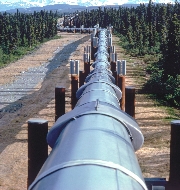Construction work TAPI gas pipeline project begins
Ground breaking ceremony of 1800-kilometre-long Turkmenistan-Afghanistan-Pakistan-India (TAPI) gas pipeline project was held at the ancient city of Mary of Turkmenistan.
The ground breaking function was attended by Turkmenistan President Gurbanguly Berdimuhamedow, Afghanistan President Ashraf Ghani, Pakistan Prime Minister, Nawaz Sharif and Indian Vice President Mohd Hamid Ansari.
Turkmenistan is believed to have the world’s fourth-largest gas reserves and presently exporting it mainly to China.
About TAPI Project
- TAPI gas pipeline project is a proposed trans-country natural gas pipeline from Caspian Sea, Turkmenistan to India through Afghanistan and Pakistan.
- Countries involved: The abbreviation TAPI itself indicate its member countries- Turkmenistan, Afghanistan, Pakistan and India.
- Distance: The pipe line connects central Asia with south Asia covering 1,800 km.
- Reserves: The pipeline begins from Turkmenistan’s Galkynysh field (formally known as South Yoiotan Osman) that has gas reserves are 16 trillion cubic feet.
- Project Cost: The estimated construction cost of the project is 10 billion US dollars and is being funded by Asian Development Bank (ADB).
- Capacity: It has capacity to carry 90 million standard cubic metres a day (mmscmd).
- Supply Share: Both India and Pakistan will get supply of about 38 mmscmd whereas Afghanistan will get 14 mmscmd supply of natural gas.
- Supply Life: The life of supply is expected to last for period of 30 years and shall be operational from 2019.
- Runs through: Galkynysh field (Turkmenistan) – Herat and Kandahar province (Afghanistan) – Multan via Quetta (Pakistan) and ends at Fazilka in Punjab (India).
- Security: Establishment of an inter-government joint security task force (JSTF) has been recommended to serve as the nucleus of the safety of the pipeline by a security consultant has recommended.
Comment
The TAPI Project is considered as an important initiative of these four countries to connect energy rich Central Asia with energy starved South Asia. It marks a new dawn of economic engagement through regional connectivity by economically integrating region stretching from the Bay of Bengal to the Caspian Sea.
From India’s perspective, TAPI Project will provide an alternative supply source of gas with dependable reserves leading to enhanced energy security. It will further diversify the fuel basket to the benefit of Indian economy as it would be used mainly in power, fertilizer and city gas sectors.
Month: Current Affairs - December, 2015


